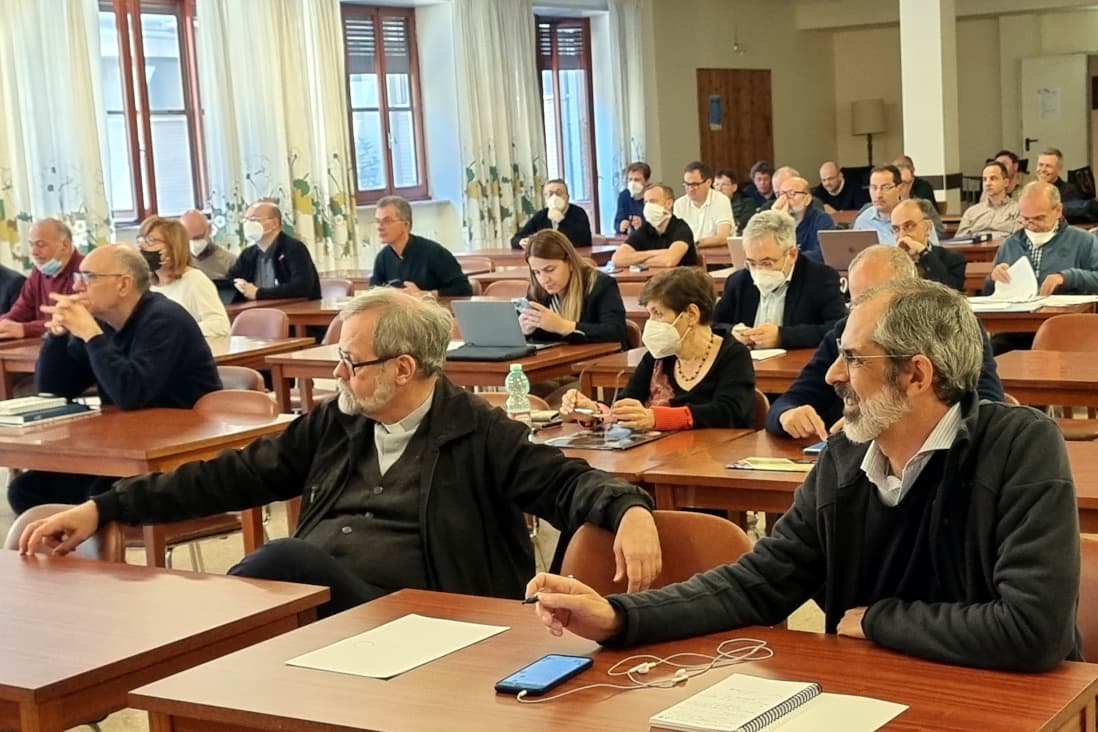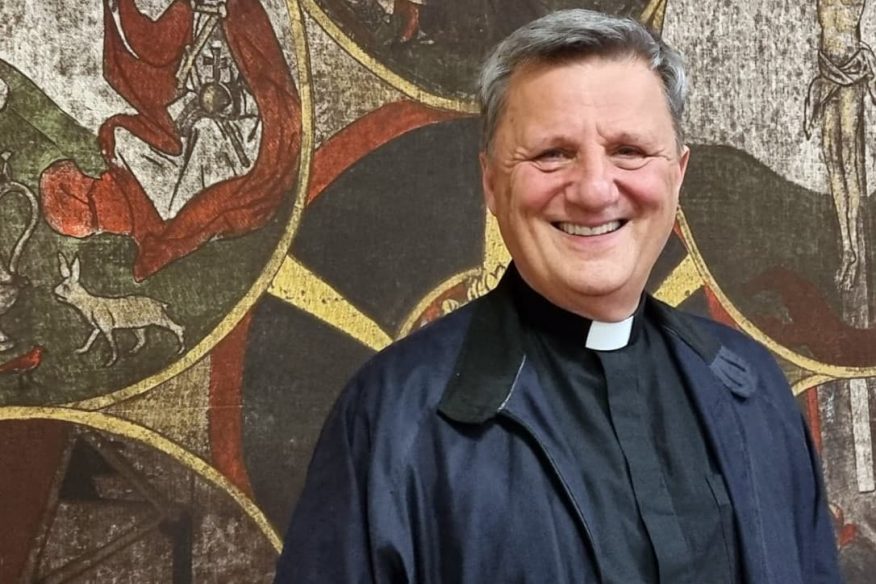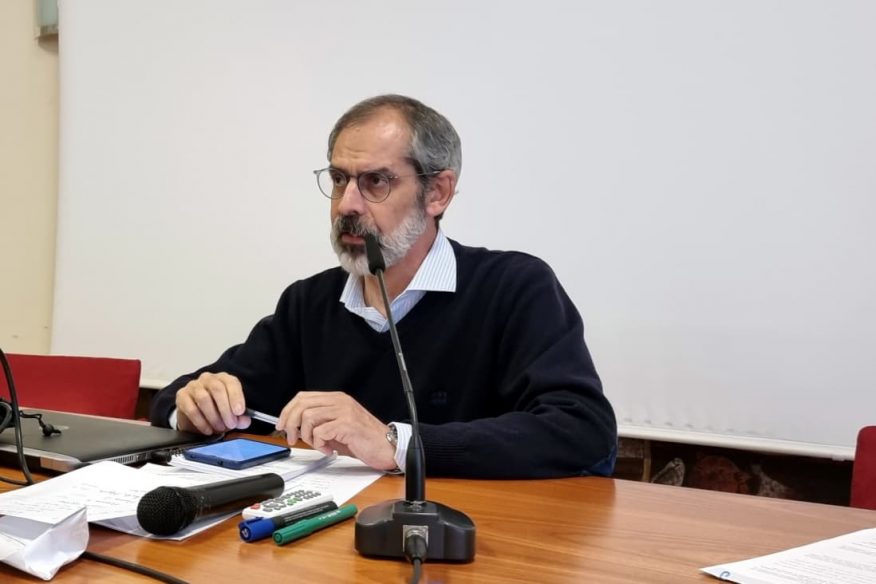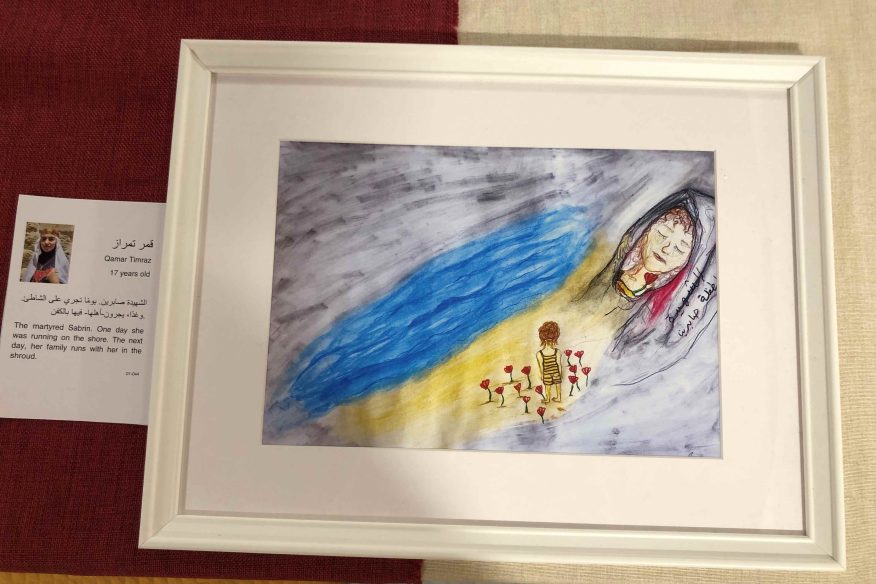Synod: Jesuits and non-Jesuits journeying together, “fellow travellers”

A meeting of the directors of works of Italy, Albania, Malta and Romania took place in Rome. It was a synodal experience of profound listening to each other.
To undergo a synodal experience was the aim of the meeting, once again in person, for the directors of the Jesuit works of the Euro-Mediterranean Province held from 30 April to 2 May at Our Lady of Mercy House in Rome. “Fellow travellers” was the theme chosen, in view of the Jesuit contribution to the synod. This meeting included moments of prayer, workshops, and the lectio by Sr. Francesca Balocco on the meeting between Peter and Cornelius. Then in the presence of Card. Mario Grech, general secretary of the synod, some testimonies were shared which are a sign of an outward looking church. These were some of the key moments experienced together.
The contribution to the synod
The days were spent in an in-depth study of the preparatory document for the synod and discussions were held in groups on the 10 main topics: fellow travellers, listening, taking the floor, celebrating, co-responsibility in the mission, dialogue in the Church and in society, dialogue with other Christian denominations, authority and participation, discernment and decision making, and personal formation in synodality. It was an intense time of communication, and feedback was given in the form of key words, which highlight – among other things – a renewed commitment to listening and discernment, gratitude, accompanying freely, and responsibility.
Testimonies
It was an experience of shared listening, a time to get out of one’s own comfort and be challenged. A separated and cohabiting couple recounted their experience of coming closer to the sacraments. The desire, the search and the encounter with mercy, has matured within the community of the parish of Crocifisso dei miracoli in Catania in harmony with the diocese. The change in relationships, the need to give back, the commitment as guides of the group of wounded families that today add up to 18 persons, is always progressing and open to all possibilities.
A volunteer who has been working with the Rom in Cosenza for about 40 years recounted her experience of her own inner transformation, and of the change in her outlook. She speaks of the consolations and desolations she experienced and of her growth in empathy with those she came to know. Enzo, 33 years of age, a graduate in the science of education, spoke of his satisfaction in managing to reach his goal. He was raised with the support of the Popilia Association, founded by Fr Alberto Garau in the 1980s, of which Franca is a member. Enzo highlighted ‘my degree should not be regarded as an exception’ and then he spoke of his dream: a normal life.
Prof. Daniele Garrone, a biblical scholar, and an Italian Protestant Waldensian pastor and President of the Federation of Evangelical Churches in Italy, shared about the most urgent frontiers, the commitment to humanitarian corridors, reviewed the relations of the last 40 years with the Catholic Church, from moments of great progress to moments of slowdown, and drew attention to the importance of personal relationships. “I can see that progress was made. We experience everything with gratitude and without disappointment”.

Card. Grech: “It is the synod of the whole Church. We are not educated to listen”.
“The testimony of the couple would be unthinkable if there had not been the synod of families, or better still two synods, where the Church listened to families. We have a long way to go. This synod does not belong to the bishops but to the Church. The very name of the secretariat has changed. The whole Church is in synod. An important dimension is listening”. Then he gave an image of the church. “I would say a person with big ears, this is the Church. We have not been trained to listen, and even today we are not educated in this sense”. The invitation is to start with the particular churches. “If this process of listening is lacking, there will be failure. There is resistance, but not from the laity. Do something,” he appealed. “The purpose of the synod is to heed the views of each other, to listen to what the Spirit is saying to the Church. Who knows what experience of the Spirit many baptised people are having, experiences that have not yet emerged. This will help us to update ourselves as a Church”.

Fr. Del Riccio: keeping in mind the tensions that exist and rediscovering the style of the gift
At the conclusion of the meeting, the Provincial gave an overview to those present of some existing tensions: between institutions and structures, principle and theory – which change and will be understood over time. Another tension is that between charism – which is the gift that the Spirit gives to someone and through him to the Church – and the actual persons to whom the gift is given, Jesuits and non-Jesuits. Finally, another tension he mentioned was between the global – the province, with 4 different countries – and the local.
He then encouraged those present to rediscover the style of the gift: “The apostolic plan is more than what we have been asked to do and more than what we will give. In this sense we are called to elaborate on plans and projects without disrupting their origin and destination; to walk without leaving anyone behind but also without letting ourselves be blocked by those who, for example, do not want to leave their comfort zone; to question ourselves on the role of the laity in the governance of the Province”.
Feedback
“We are on the way together, Jesuits and non-Jesuits. This gives me a lot of confidence,” Fr Michael Bugeja, Delegate for Malta and the Mission of Romania, highlighted as a side-line of the meeting. “even if we have no clarity about what we shall be facing tomorrow. Yesterday’s bread is secure, tomorrow’s bread is not yet baked. Thank you for today’s bread. It is the sentence I heard that has mainly remained with me. Discernment will be useful to bake tomorrow’s bread”. Zef Bisha, delegate for Albania, adds: “Together we will succeed”.
A summary of all that took place is being prepared and will be sent to the secretariat of the synod, with the contributions that emerged from the group work and the feedback shared in the assembly.








